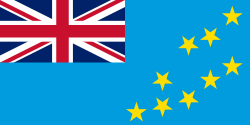References
- ↑ Map of Vaitupu. Tuvaluislands.com. Archived from the original on December 11, 2012.
- ↑ British Admiralty Nautical Chart 766 Ellice Islands (1893 ed.). United Kingdom Hydrographic Office (UKHO). 21 March 1872.
7°28′49″S178°41′38″E / 7.4804°S 178.6939°E
